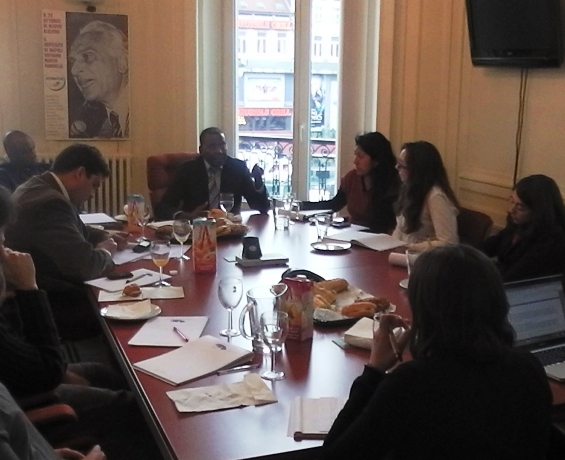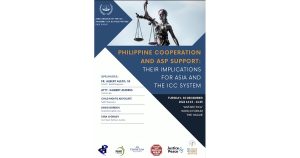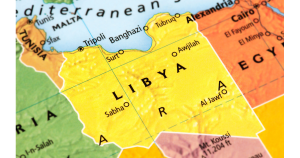On 4 December 2012, on the initiative of the Unrepresented Peoples and Nations Organisation, No Peace Without Justice hosted a roundtable discussion with Mr Biram Dah Abeid, founder and president of “Initiative pour la Résurgence du Mouvement Abolitionniste en Mauritanie – IRA” (Initiative for the Resurgence of the Abolitionist Movement in Mauritania). The meeting was held in the framework of the Brown Bag Lunch seminar series, which consists of monthly lectures by prominent speakers and experts on human rights and political issues relevant to NPWJ work.
Mr Dah Abeid, whose organisation is member of UNPO, has been acting against slavery for many years, advocating for the rights of the Haratines, who are the largest minority group in Mauritania, yet the most politically and economically marginalised as a result of centuries of enslavement by the dominant Arab-Berbers. On 29 April 2012, Mr Abeid and other IRA activists were arrested in connection with the burning of some Islamic law books; they were detained and brought before a magistrate who charged them with “threatening state security”. Their detention ended three months ago, on 4 September 2012, when they were all released.
Mr. Biram started the meeting reminding this difficult period just concluded and taking the opportunity to thank all the people supporting him during his detention, in particular those who provided him access to information, which represented an important help and strength to get him out of prison.
Then, Mr Abeid reported the peculiar situation of the Mauritanian judicial system, in order to better explain the reason and context of his act, considered by many as “blasphemous”. The main sources of law in the constitution of Mauritania are, indeed, the Shariah and a series of religious texts wrote about between IX and XV century. Since they justify the existence of slavery, not only legally but also culturally, those ancient texts are one of the main reasons of its ongoing existence in Mauritania. So his act, even if provocative and shocking, was conceived to put the attention on what these books says, and not, as reported by some official media, to offend the religion and the Islam. IRA, indeed, wants to promote and communicate the universal and humanitarian side of Islam and Koran, based on freedom, equality and brotherhood. For this purpose IRA is organising, during the month of March 2013, severaldays of discussion and colloquia involving also national and international actors.
Concluding his speech, Mr. Abeid underlined the peculiar situation of his country on international level regarding Human Rights in general and slavery in particular. Even if Mauritania officially declares its commitment against slavery, signing international agreements and passing domestic laws to limit this practice and punish its perpetrators, reality is completely different and slavery not only is very common and tolerated across all the country, but also sustained and promoted by elites and government.




